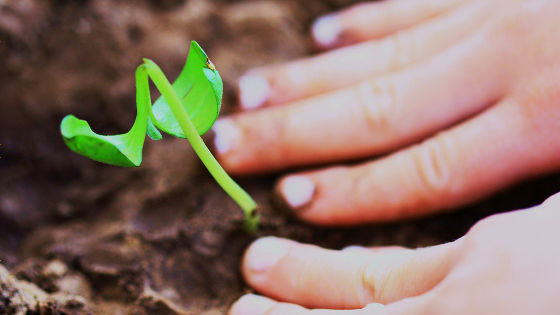Children can face "Growth, Mindset" by face-to-face without failing their eyes from failure

ByMonkai Chen
The ability of ability such as intelligence and creativity is not born in nature, but the thought attitude that you can extend it yourself is "Growth mind set(A way of thinking to grow) ", and in the West, a book written about Growth MindsetStudy of Mindset "If You Do It!"Becoming a best seller, such as attracting a lot of attention. In order to foster this "Growth and Mindset", papers that require a thinking process to learn from "failure" have been published, and it seems to be a reference for children's education method.
Neural evidence for enhanced attention to mistakes among school-aged children with a growth mindset
http://www.sciencedirect.com/science/article/pii/S1878929316302183
Kids should pay more attention to mistakes, study suggests - ScienceDaily
https://www.sciencedaily.com/releases/2017/01/170130100240.htm
A research team at the University of Michigan in the USA conducted an experiment to investigate the relationship between "Growth Mindset" and "Failure". Experiments were conducted with children with growth and mind set that believe that ability and intelligence will grow if you learn 123 children (62 females, 61 men) from 5 to 8 years of age, the ability and intelligence are born and fixed It is divided into two groups of children with a fix · mindset that believes that it is being changed and does not change, and observes the movement of the brain in real time while asking the task to be executed. The children went by saying "When animals are displayed on the screen of the display, they will catch by pressing the space key, but the friends orangutans do not need to catch," the speed and accuracy are required.

ByPhilippe Put
Experimental results showed that children with Growth / Mindset were trying to improve mistakes in the next task, thinking why they made a mistake when they made a mistake, according to the reaction of the brain. On the other hand, children with Fixed · Mindset are striving to recover from the fact of making a mistake after making a mistake, but this is confirmed only when firmly considering why the child made a mistake It was. In previous studies, people with Fixed · Mindset showed difficulty in accepting the fact of making a mistake, while trying to defend themselves by taking other tasks that are good at committing mistakes after making a mistake I knew there were people.
However, in this experiment, even children with Fixed · Mindset turned out to be able to learn from a mistake like a child with Growth · Mindset if you can look at the failure you committed That's it.

ByErin m
Dr. Hands Schroder, who led the experiment, said, "Many parents and teachers tend to make a mistake as children make a mistake," Do not worry because you can do it next time. "But what is wrong, what made you mistake? It is a great opportunity to think about whether you have committed a misunderstanding to the child if you give advice to the child, rather than rushing down "not anyone makes a mistake, so let's think about why you made a mistake" I should say it. "
The "Growth · Mindset" is described in detail in the following article.
Difference between 'thinking to grow' and 'way of thinking that can not grow' clearly in 20 years of research - GIGAZINE
Related Posts:








